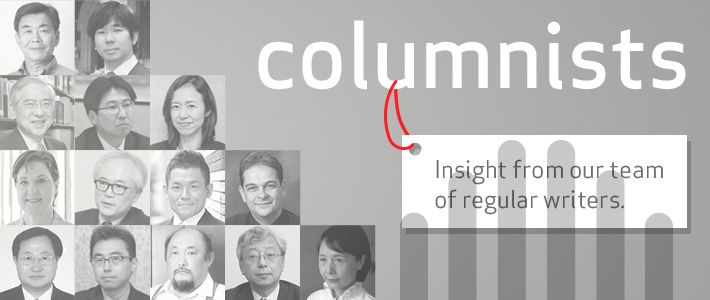
Asia Diplomacy in President Obama’s Second Term
Politics- English
- 日本語
- 简体字
- 繁體字
- Français
- Español
- العربية
- Русский
During their first term in office, US presidents have a tendency to focus on reelection. In their second term, they begin to think about their future place in history. President Barack Obama is unlikely to be an exception in this respect, although as the nation’s first black president his name is already written in the history books. His administration faces a number of domestic issues, many of which are symbolized by the so-called “fiscal cliff.” But President Obama also has his sights set on foreign policy. In his first term he pledged that the United States would be a “Pacific power,” with an emphasis placed on Asia. It will be his second term where that commitment will be put to the test. In this article I would like to consider what the United States may expect of Japan, as a linchpin in that Asia strategy.
A Choice Between Asia Strategy and the Fiscal Cliff
On his first diplomatic trip following reelection, President Obama traveled to Southeast Asia, where he visited Thailand and Myanmar (Burma), as well as Cambodia, which was hosting the Association of Southeast Asian Nations summit. The United States is aiming to use the territorial disputes in the South China Sea between China and a number of ASEAN member states to draw Cambodia out of the Chinese sphere of influence while also backing the democratization movement in Myanmar, which had been the stronghold for China’s “southern strategy.” According to Fujisaki Ichirō, former Japanese ambassador to the United States, the second term of the Obama administration will feature “no fundamental change” to its Asia-focused strategy, which has sought to reap the benefits of Asian prosperity while considering how best to engage with China. It is not easy to know, though, whether this approach will indeed bring positive results.
For its domestic policies, the Obama administration intends to firmly maintain the spending on social welfare that has brought beneficial results to the weaker members of society, as it did during the first term of office despite four consecutive annual deficits exceeding $1 trillion. Instead of cutting social spending, President Obama has decided to make significant cuts to the defense budget. This $500 billion reduction in defense spending over 10 years amounts to an average annual reduction equivalent to Japan’s overall defense budget. This means that if the Obama administration intends to actually implement its Asia strategy, it will come up against what could better be described as a “fiscal wall” rather than a cliff.
The foundation of Japanese security and diplomacy has been an engagement with China based upon the Japan-US alliance. Japan now faces a situation, however, where it has to take the initiative in strengthening its own defensive capabilities in line with its emphasis on the southwesterly islands, a more dynamic defense force, and its decision to defend the Senkakus on its own. Japan needs to also be aware of its expanding fiscal burden. Indeed, this fiscal burden is the reverse side of the Asia-focused strategy of the Obama administration too.
Clinton-Campbell Duo to Step Down Soon
Amidst this situation, the eyes of the Japanese government are fixed on the new American diplomatic lineup with regard to Asia. Hilary Clinton, who was instrumental in making the Asia strategy a pillar of US foreign policy, is certain to step down from her position as secretary of state. Kurt Campbell, who has handled the policy toward Japan as assistant secretary of state for East Asian and Pacific affairs, and Leon Panetta, the secretary of defense, are also expected to exit their positions.
Clinton and Campbell have been a formidable pair—the secretary of state has won praise for her diplomatic prowess and the assistant secretary has demonstrated a solid understanding of Japan. Upon becoming the head of the State Department, Clinton chose Japan as the destination for her first overseas trip. As secretary of state, she has sought to develop a well-balanced diplomacy that emphasizes Asia, thereby broadening the US diplomatic perspective, which had leaned too heavily toward Europe, Russia, and the Middle East. As one official from Japan’s Ministry of Foreign Affairs noted, “It would be hard to find a new duo that will be as beneficial to Japanese diplomacy as Clinton and Campbell have been.”
A number of names have been mentioned as candidates for the next secretary of state. These include Senator John Kerry (who is also a candidate for secretary of defense), former Chairman of the House Committee on Foreign Affairs Howard Berman, Thomas Donilon, the assistant to the president for national security affairs, Susan Rice, the US ambassador to the United Nations, and former Republican senator Chuck Hagel. Candidates mentioned for the position of assistant secretary of state for East Asian and Pacific affairs include Michael Schiffer, Frank Jannuzi, Richard Bush, Kenneth Lieberthal, and Susan Shirk.
The situation is still in flux with regard to the lineup of government officials, but there is a possibility that the emphasis on Asia will not be a signboard of US diplomacy during President Obama’s second term in office. There is even an expectation that the actual grounding of US foreign policy will remain in the Middle East amidst deepening concerns over Iran’s nuclear program and the growing confusion in that region. Japan faces a situation where, to again borrow the analysis of former Ambassador Fujisaki, “the fundamental policy might remain the same, but the change in top personnel could still have an impact on Japan-US relations.”diplomacy Japan United States Myanmar ASEAN Barack Obama Cambodia Thailand finance Hilary Clinton